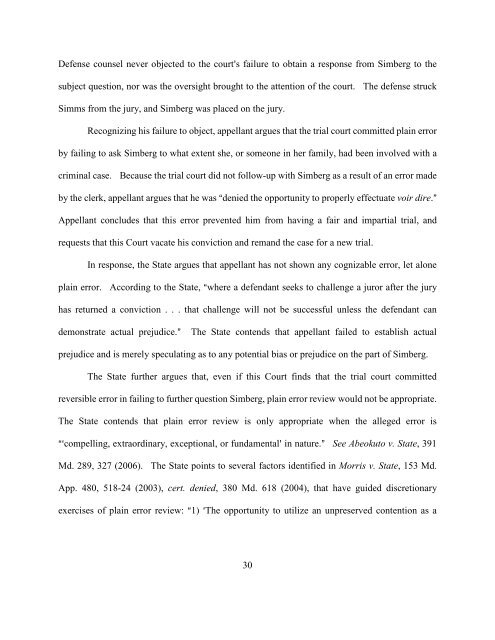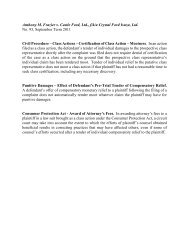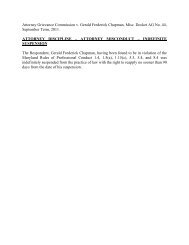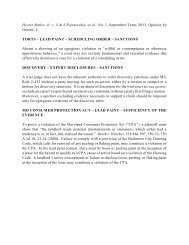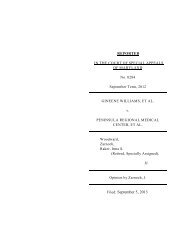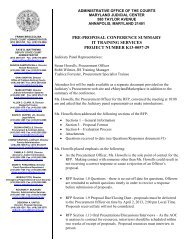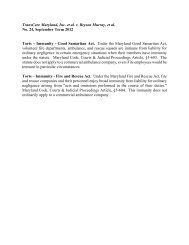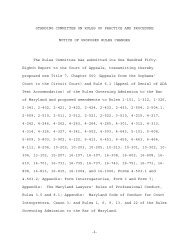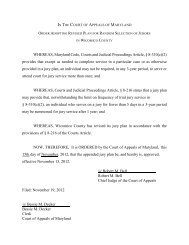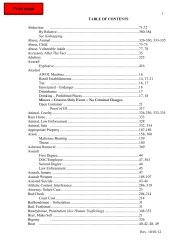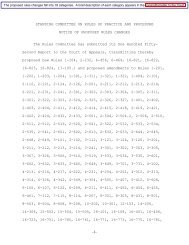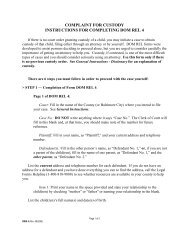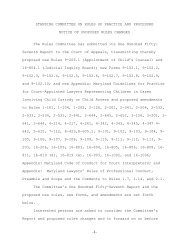2842/09 - Maryland Courts
2842/09 - Maryland Courts
2842/09 - Maryland Courts
Create successful ePaper yourself
Turn your PDF publications into a flip-book with our unique Google optimized e-Paper software.
Defense counsel never objected to the court=s failure to obtain a response from Simberg to the<br />
subject question, nor was the oversight brought to the attention of the court. The defense struck<br />
Simms from the jury, and Simberg was placed on the jury.<br />
Recognizing his failure to object, appellant argues that the trial court committed plain error<br />
by failing to ask Simberg to what extent she, or someone in her family, had been involved with a<br />
criminal case. Because the trial court did not follow-up with Simberg as a result of an error made<br />
by the clerk, appellant argues that he was Adenied the opportunity to properly effectuate voir dire.@<br />
Appellant concludes that this error prevented him from having a fair and impartial trial, and<br />
requests that this Court vacate his conviction and remand the case for a new trial.<br />
In response, the State argues that appellant has not shown any cognizable error, let alone<br />
plain error. According to the State, Awhere a defendant seeks to challenge a juror after the jury<br />
has returned a conviction . . . that challenge will not be successful unless the defendant can<br />
demonstrate actual prejudice.@<br />
The State contends that appellant failed to establish actual<br />
prejudice and is merely speculating as to any potential bias or prejudice on the part of Simberg.<br />
The State further argues that, even if this Court finds that the trial court committed<br />
reversible error in failing to further question Simberg, plain error review would not be appropriate.<br />
The State contends that plain error review is only appropriate when the alleged error is<br />
A>compelling, extraordinary, exceptional, or fundamental= in nature.@ See Abeokuto v. State, 391<br />
Md. 289, 327 (2006). The State points to several factors identified in Morris v. State, 153 Md.<br />
App. 480, 518-24 (2003), cert. denied, 380 Md. 618 (2004), that have guided discretionary<br />
exercises of plain error review: A1) >The opportunity to utilize an unpreserved contention as a<br />
30


